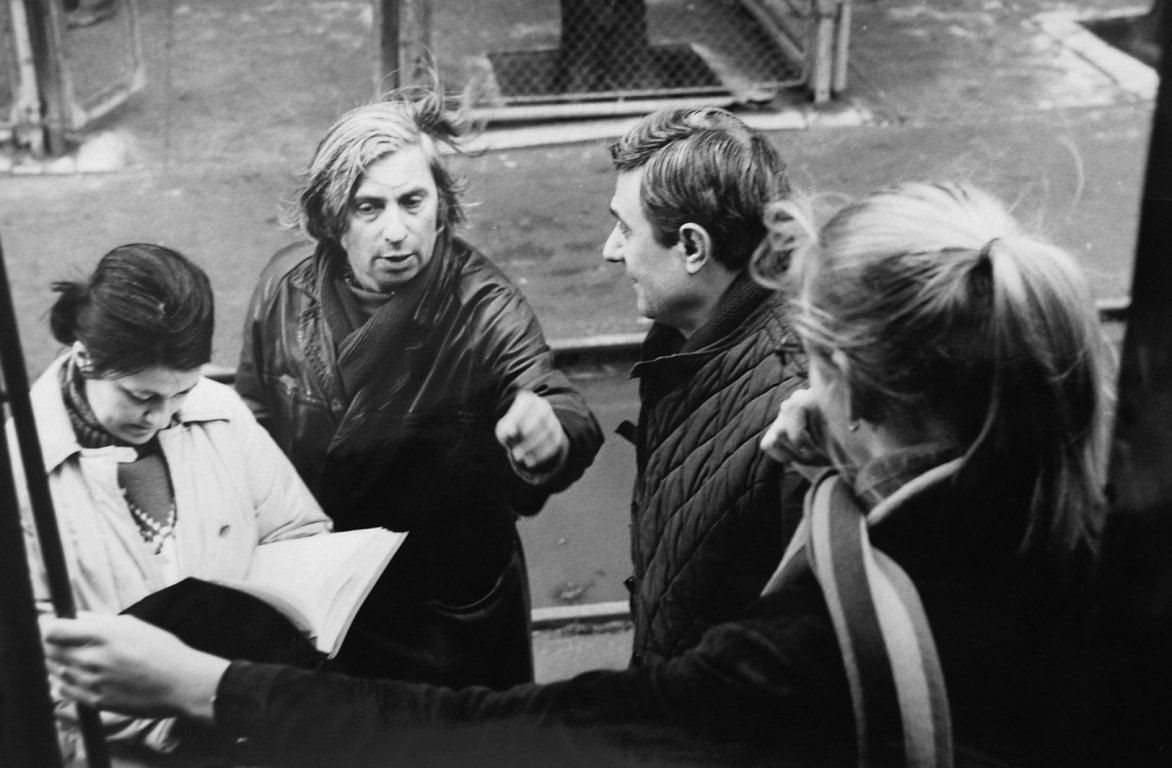Péter Bacsó in Cannes
Péter Bacsó, a Kossuth and Balázs Béla Prize-winning director and the Master of Hungarian Moving Pictures, is an ‘institution’ in the history of Hungarian film. In addition to his directorial oeuvre, the list of films in which he participated as a script consultant, ideas man, screenwriter, lyricist, studio director and producer is inexhaustibly rich. Although, of the films he directed, only The Witness (1969) – which was banned before becoming a cult movie – actually made it to Cannes, in the Un Certain Regard section, 12 years after the film was made (1981). Bacsó worked as a writer on numerous other great Hungarian films that attained worldwide success and were entered into the Cannes festival.
Bacsó was born in Kosice in 1928. His mother was the Hungarian author Boris Palotai. In 1940, he and his mother escaped the deportations in the countryside by moving to Budapest. In 1950, he graduated from the film direction faculty of the College of Theatre and Film. During the 1950s he worked as a script consultant and screenwriter, and directed 33 full-length feature films and TV series. His first auteur films about youth still fascinate viewers with their freshness and uniqueness (No Problems in Summer (1963), Cyclists in Love (1965), Fatal Shot (1970)). He gained international fame with his film Summer on the Hill (1967) in which the war and internment camps are processed in a Modernist style. The best-known work in his oeuvre, The Witness (1969), which depicts the show trials of the 1950s, became a symbol of the era. He also analysed the era in a biographical-like dramatic form in A Day Before Yesterday (1981) and Stalin’s Bride (1990) as well as in operetta form in …Oh, Bloody Life! (1983). He directed a canning factory musical (Dashing Girls (1974)) and historical films of various genres (What’s the Time, Mr. Clock? (1985), Titánia, Titánia (1988) and Smouldering Cigarette (2001)). In 1995, he made the change-of-regime adventures of dyke-reeve József Pelikán (Witness Again).
In 1955, Bacsó convinced his friend, Zoltán Fábri (who was later to be one of the lead actors in The Witness), to shoot the film Merry Go Round based on the novel Leányvásár by Imre Sarkadi. The film was a global hit at the 1956 Cannes Film Festival for Fábri, the actress Mari Törőcsik and Hungarian filmmaking in general. Together with Fábri, he wrote the screenplays for Anna and The Brute, which also went on to compete at Cannes. The list is even longer for the films he worked on as a script consultant for another of his contemporaries, Károly Makk. Liliomfi, which bypassed all schematic clichés, was recognised in the Cannes competition in 1955. This was followed in 1971 by the Jury Prize-winning film Love, the first version of which Bacsó had also contributed to in 1963. He and Makk worked together on Catsplay (1974) and Very Moral Night (1977), which was nominated for the Oscar and also started in the competition section.
Eszter Fazekas
